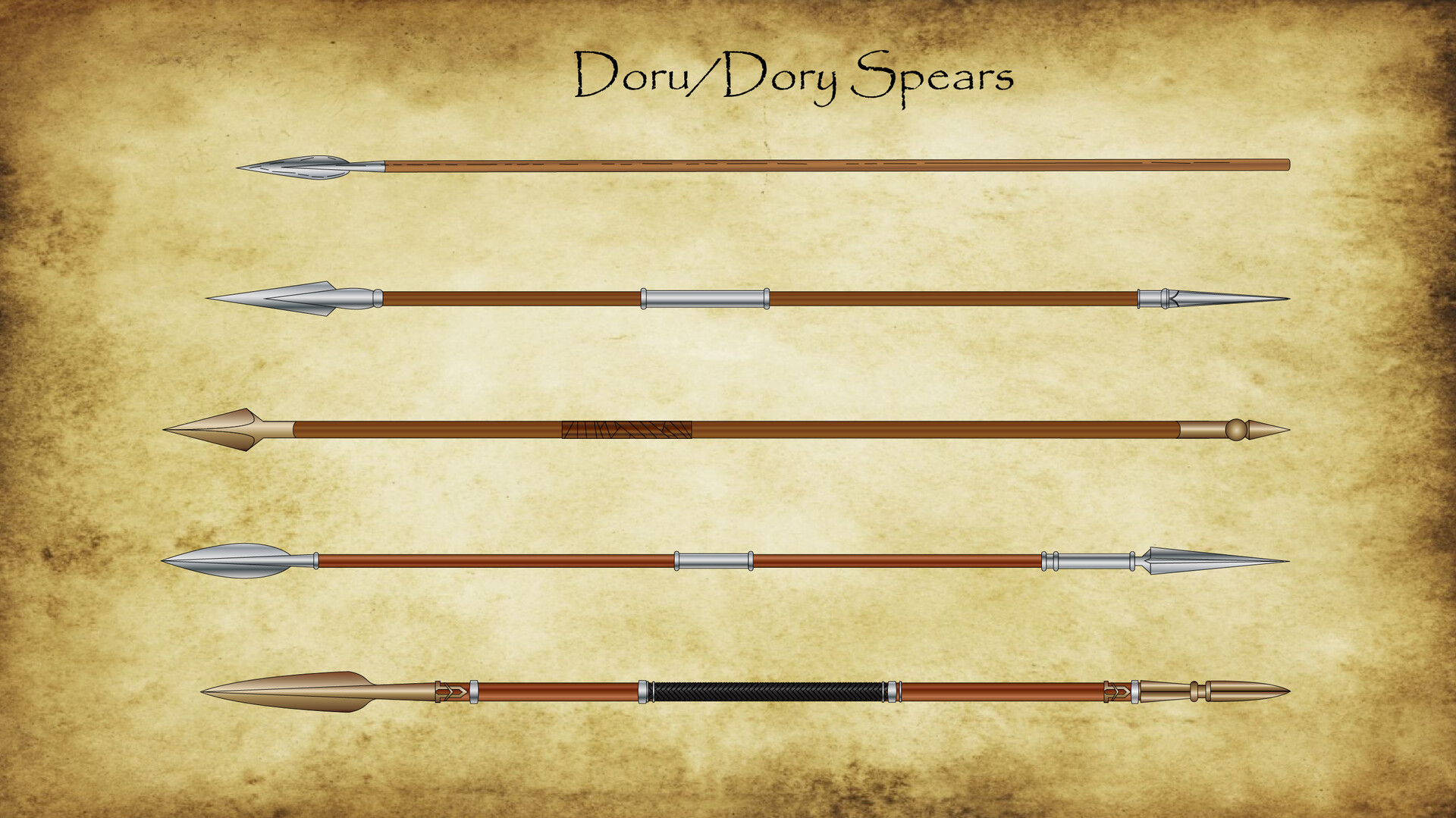
Top 9 Ancient Greek Weapons and Armors Used in Battle HowFarBack
As the economic resources of Greek city-states and individuals increased during the seventh century B.C., armies of foot soldiers were formed within the wealthier city-states. Known as hoplites, these soldiers were characteristically equipped with about seventy pounds of armor, most of which was made of bronze.
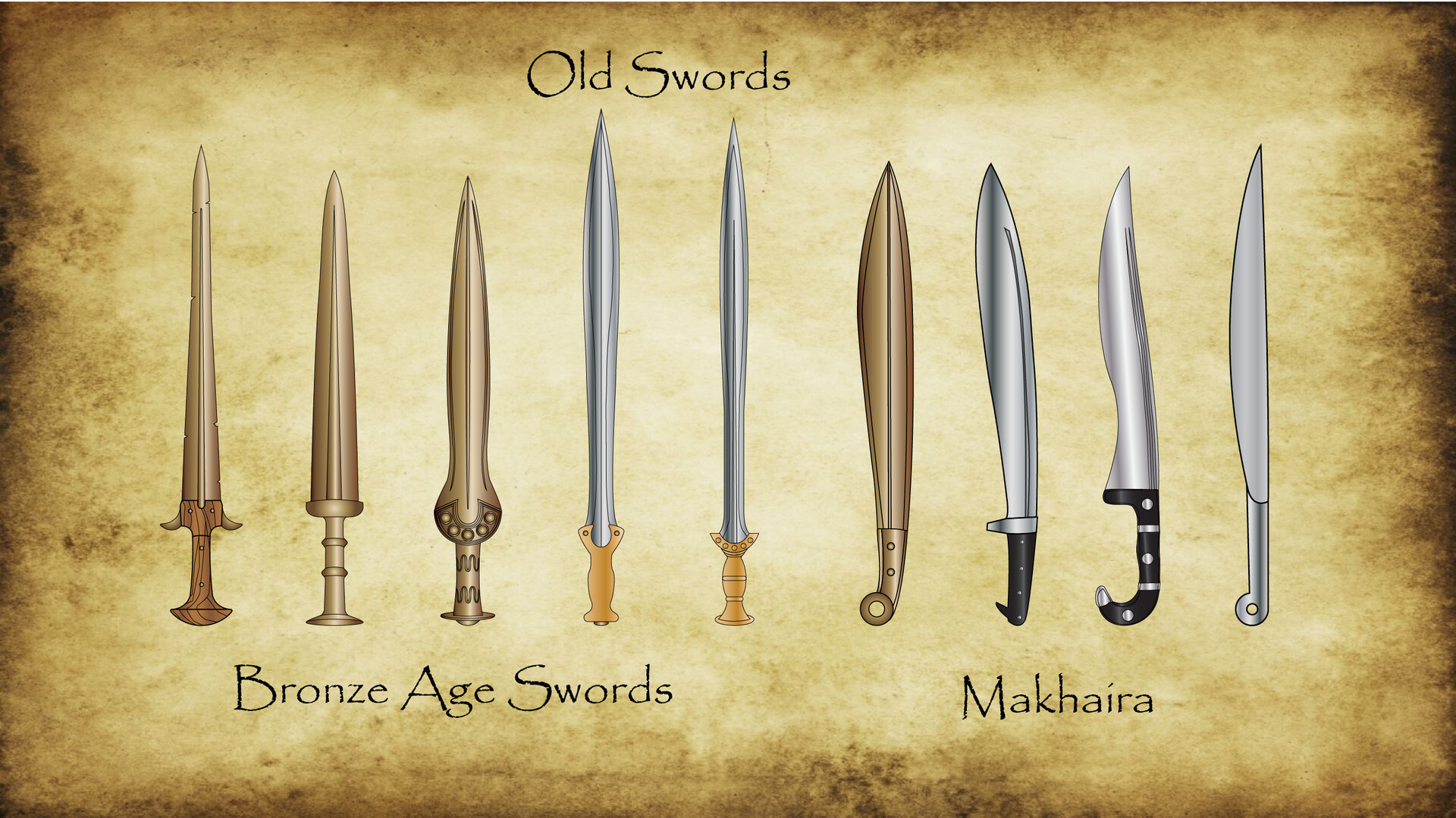
Josh Morris Ancient Greek Swords
On October 6, Greek Defense Minister Nikolas Panagiotopoulos presented new armament programs in parliament, just after France and Greece agreed on a strategic defense and security partnership September 28, which included the sale of t hree Belharra-class frigates and six additional Rafale fighter jets to Greece for around three billion Euros.
Greek Iron Swords
Spear and Sword. The spear, also known as the dory, was a very important weapon for an Ancient Greek warrior or hoplite. Spears were 6 to 8 feet long and were made out of a sharp iron head, a wooden shaft, and a bronze butt at the other end which was used in case the iron head broke. Hoplites also carried and used swords in battle.

Ancient Greek Bronze Swords Bronze age period after the Военное
The standard weapon of an ancient Greek hoplite - the heavily armored infantry of ancient Greece - was the dory. The term dory was first recorded in the work of Homer and is frequently used by the heroes of the Iliad during the Trojan War as a primary weapon. As explained in one academic paper published in 2020, "The dory simply was.
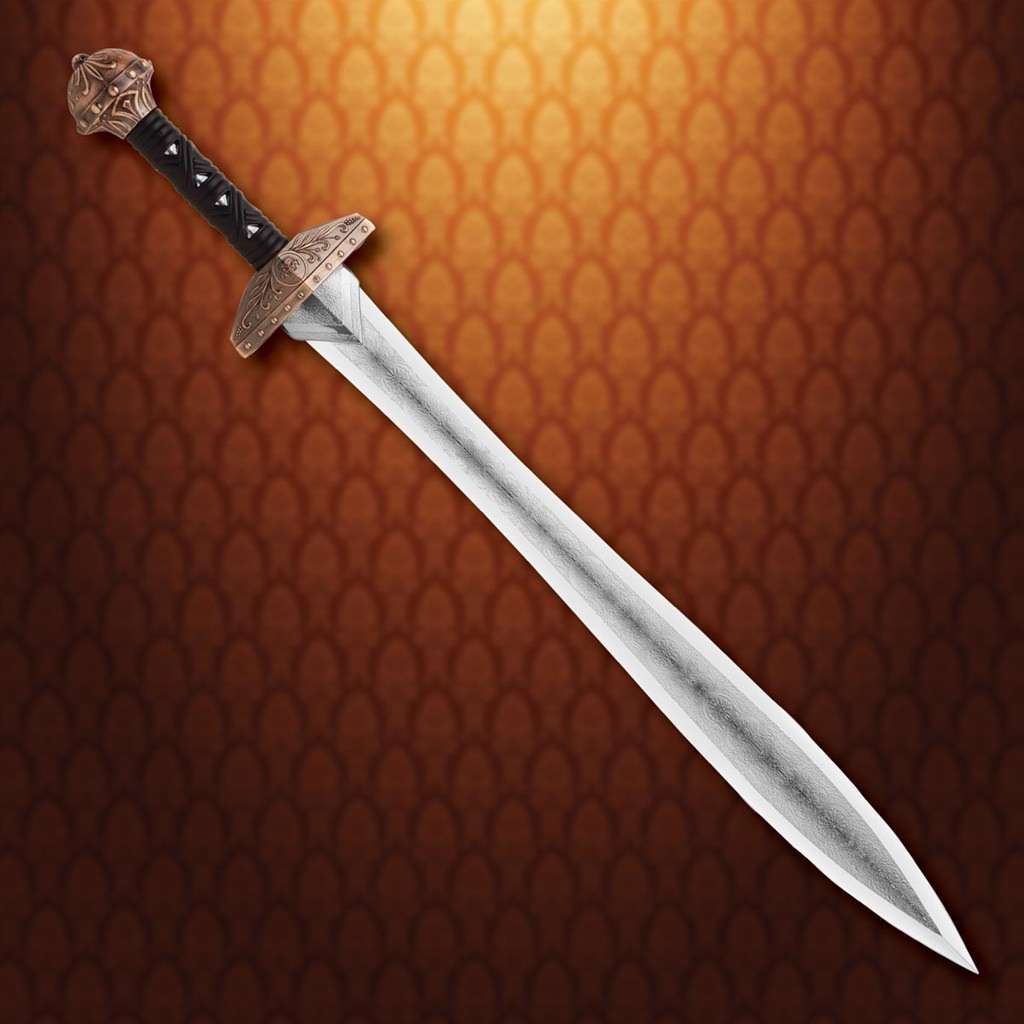
Greek Hoplite Chromed Training Sword Practice Weapon
The possession of arms and "gun laws" in Ancient Greece. March 1, 2021. In ancient Greece, as well as in cultures of that time, weapons were an important part of daily life. War was a constant threat to society and was more than just a possibility for a war to occur in everyone's life. Whether it was greedy external enemies or other interests.
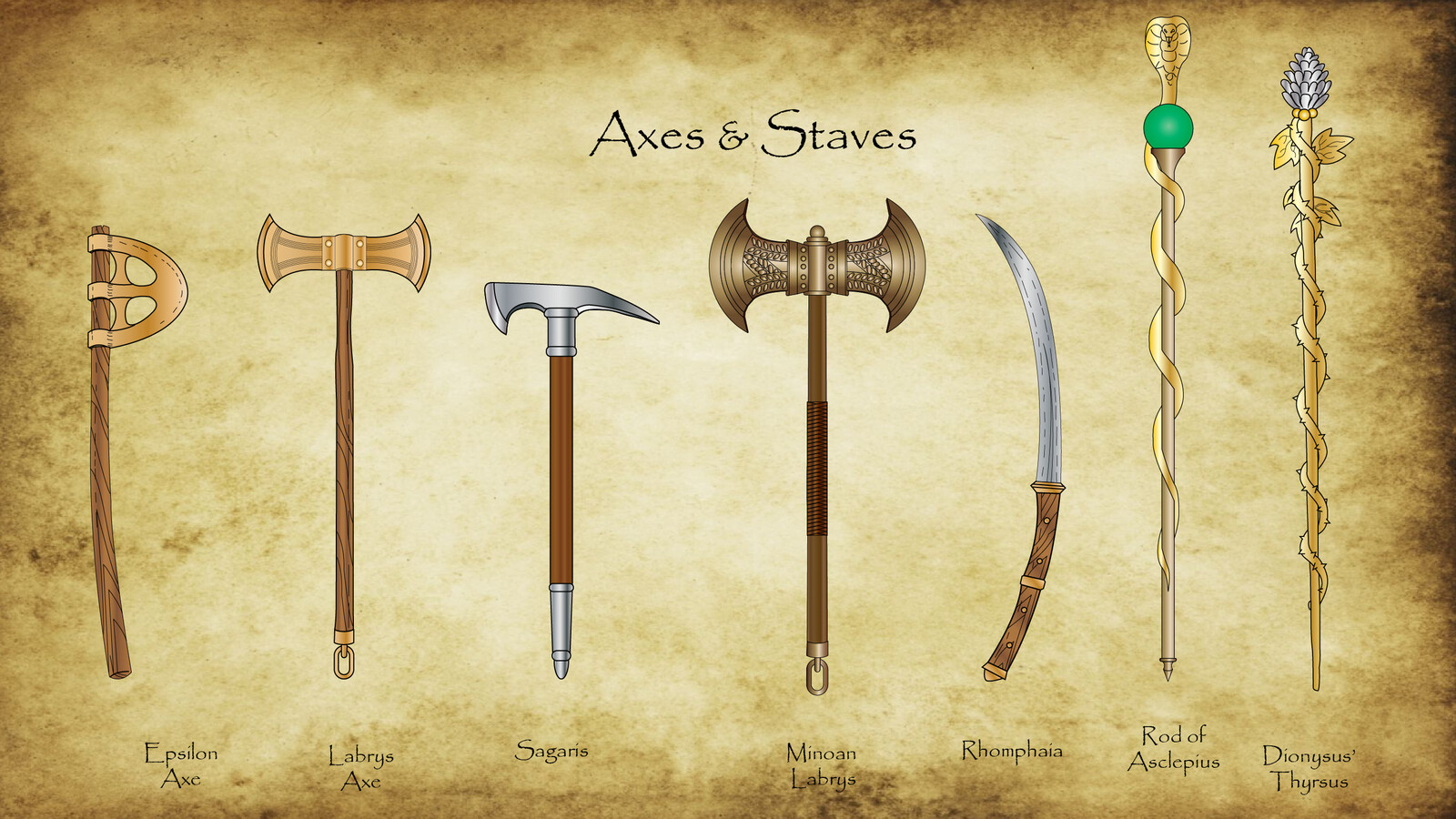
Josh Morris Ancient Greek Weapons
The sword. More than just a weapon, the sword became a symbol of Greek valor and determination. When we dig deep into the annals of ancient history, it's striking to see how these blades, particularly ancient Greek swords, left a mark that shaped empires. Imagine standing in the middle of a Greek battlefield. The weight of your iron blade, the.

Ancient myceaean swords after reconstruction replicas from the museum
But the Greek word katzapeltes originally meant "shield-piercer" ( kata = "through," + pelta = "light infantry shield"), and this was how these machines were first used in Ancient Greece. The earliest catapults were precision antipersonnel weapons—the sniper rifles of antiquity. Within a few generations, however, catapults evolved.
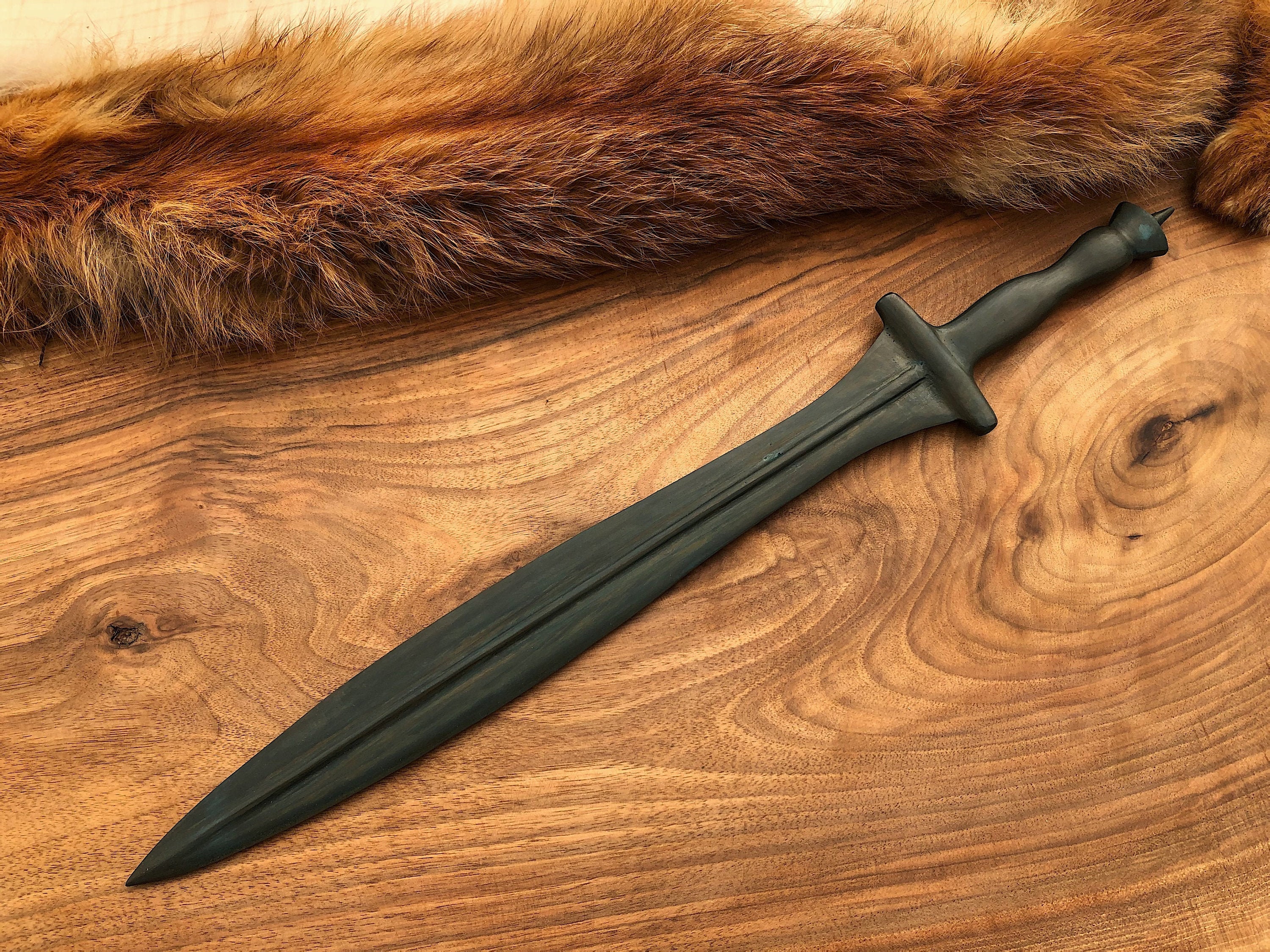
Xiphos Ancient Greek Sword Replica Bronze Xiphos Greek Bronze Etsy
Ancient Warfare Technology: Greece From 'Ancient warfare technology : from javelins to chariots', by Mary B and Michael Woods (2011). Weapons and military equipment in Ancient Greece From Infobase 2020; Warfare in Ancient Greece From Infobase 2020; Land warfare in Ancient Greece From Infobase 2020; Naval warfare in Ancient Greece From Infobase 2020
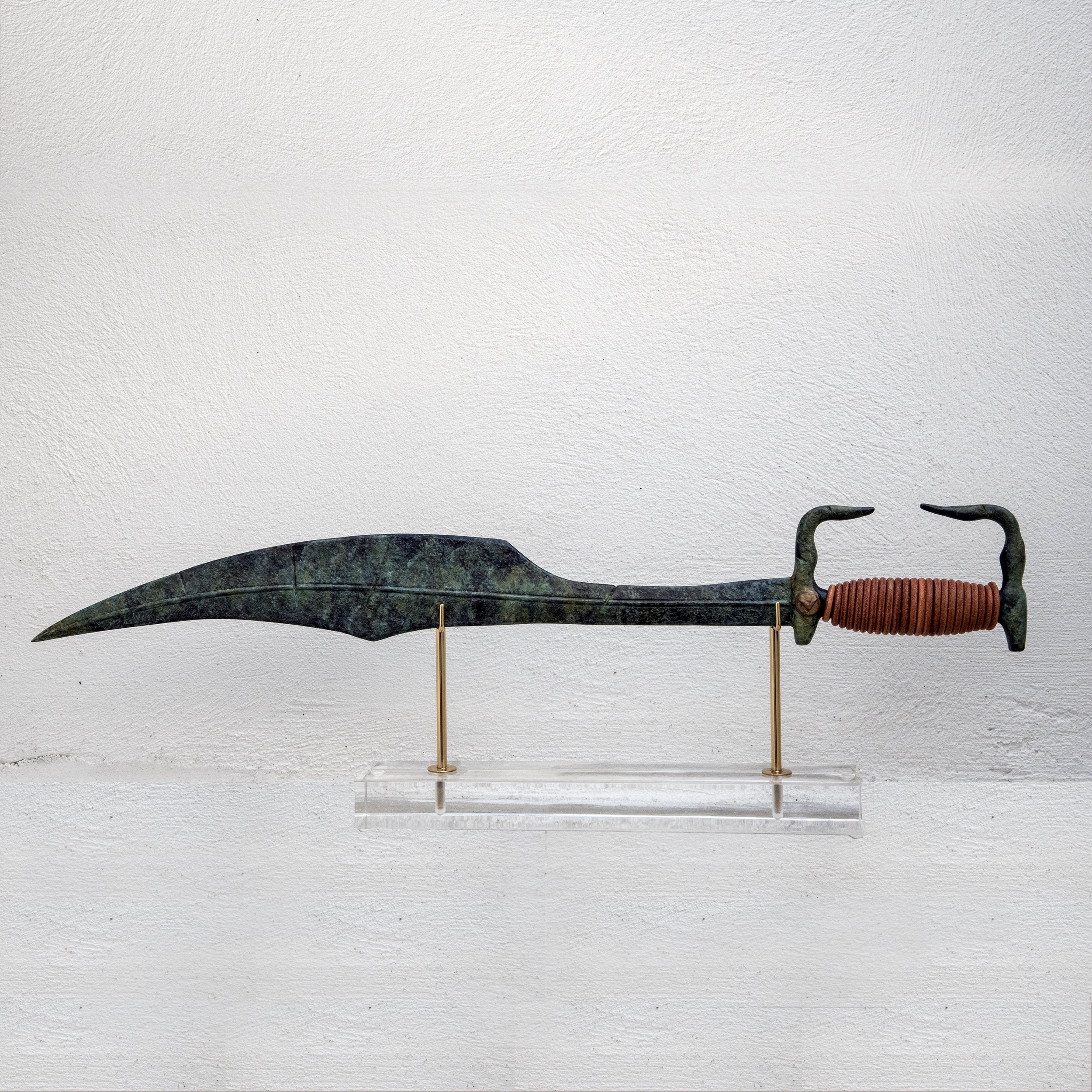
Spartan Sword of King Leonidas, Spartan Officer Sword, Ancient Greek
The Sarissa. While the dory was considered the primary weapon of the ancient Greeks, there were some areas in the Greek world that favored something much more significant. The sarissa got its start in Macedon, implemented by the father of Alexander the Great, Philip II. The sarissa was the cornerstone of the Macedonian Phalanx, a great wall of.
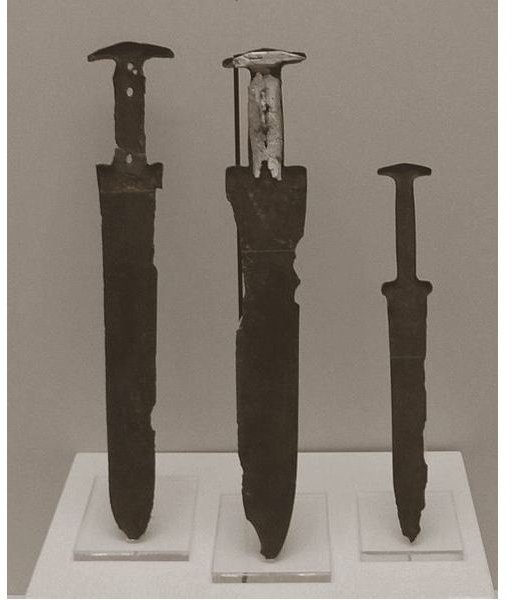
Weapons Of Ancient Greece BrightHub Education
In this collection, we examine the two main weapons used in Greek warfare: the hoplite and trireme, as well as the two main conflicts of the period, the Persian Wars and the Peloponnesian War. In addition, we look in detail at some of the most famous battles like the last stand of the 300 Spartans at Thermopylae and the victory at Marathon.
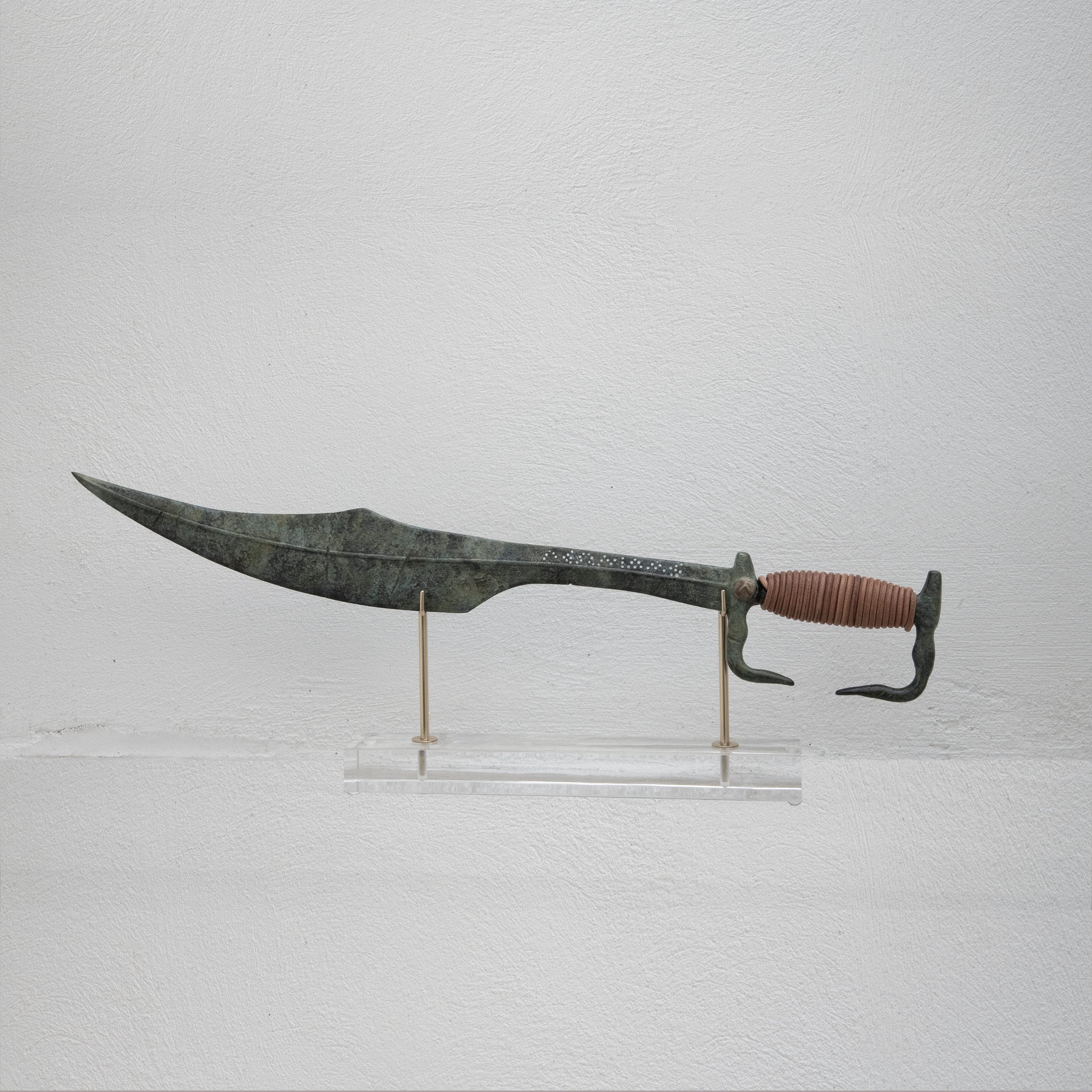
Spartan Sword of King Leonidas, Spartan Officer Sword, Ancient Greek
Published February 19, 2021. • 15 min read. As an epic poem about the Trojan War, that momentous clash of two great armies around the city of Troy, Homer's Iliad describes many acts of combat.
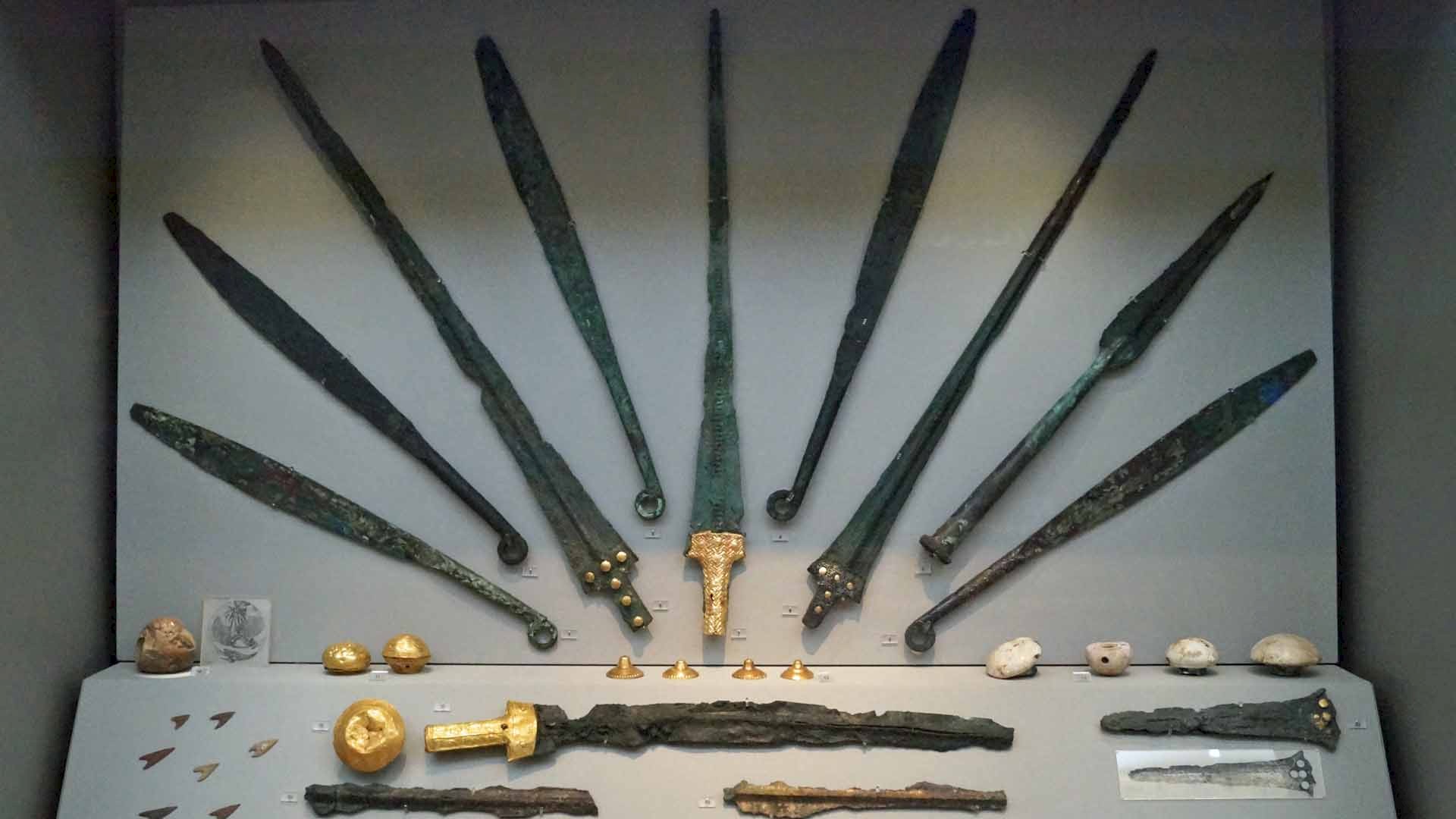
Swords in ancient Greece Ancient World Magazine
Personal weapons Spears Paintings of Ancient Macedonian soldiers, arms, and armaments, from the tomb of Agios Athanasios, Thessaloniki in Greece, 4th century BC. The primary weapon that was used by Greek troops was a two-to-three meter spear with a leaf-shaped blade at one end and a short spike at the other known as the doru. The spearhead was.
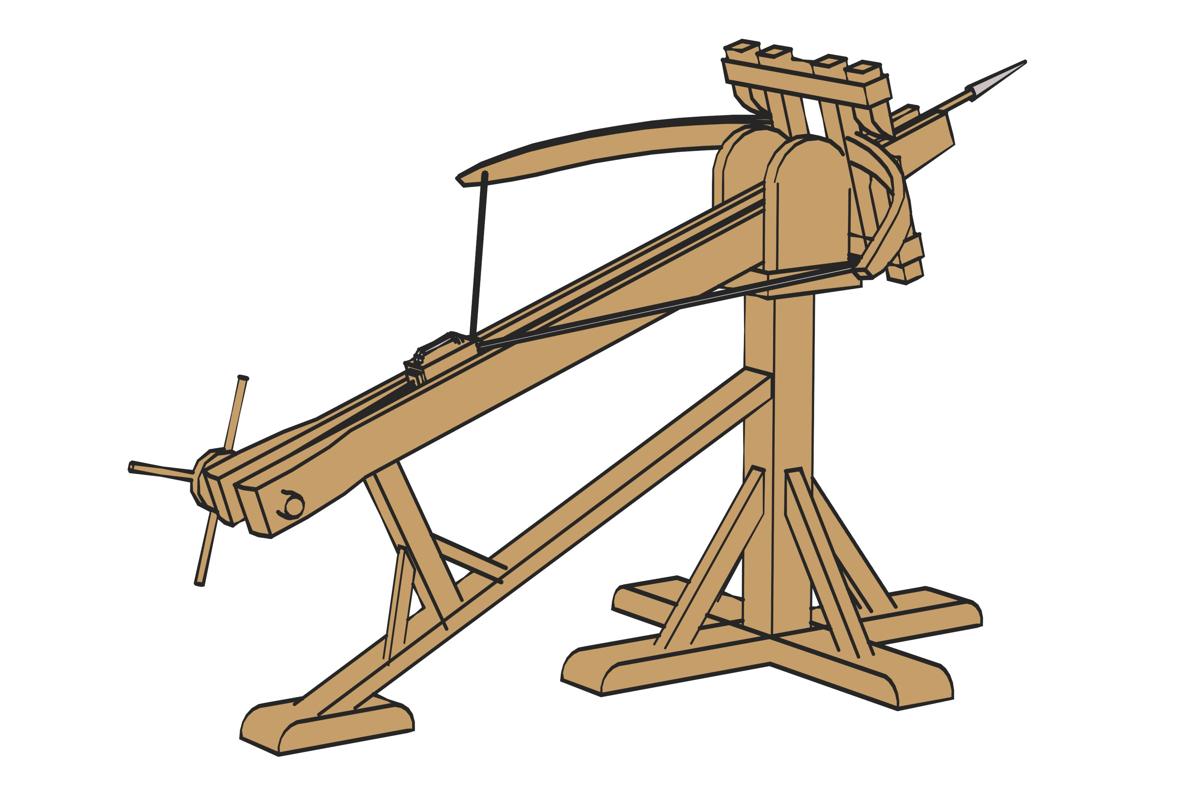
A Layman's Guide to the Ancient Greek Weapons and Their Importance
Kopis. The Kopis was a one-handed, single-edged sword used by the Greeks. It measured around 36 inches with the blade curving forward and widening near the tip. It was longer than Xiphos, the other prominent ancient Greek sword. Kopis was more useful to the cavalry "because from the height of a horse's back the cut of a Kopis will serve you.
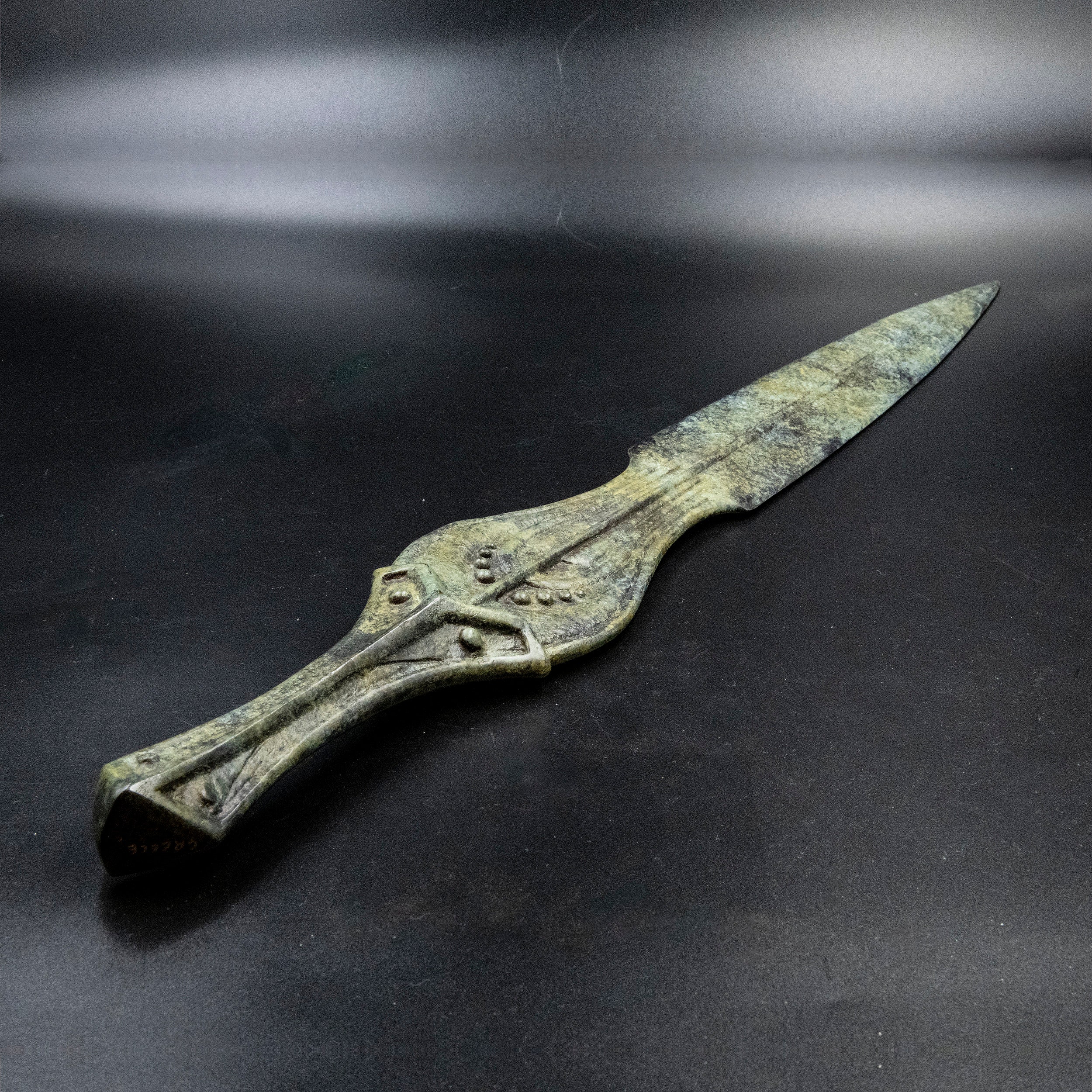
Sword of King Achilles, Ancient Greek Bronze Sword, Trojan War Greek
In the ancient Greek world, warfare was seen as a necessary evil of the human condition. Whether it be small frontier skirmishes between neighbouring city-states, lengthy city-sieges, civil wars, or large-scale battles between multi-alliance blocks on land and sea, the vast rewards of war could outweigh the costs in material and lives. Whilst there were long periods of peace and many examples.
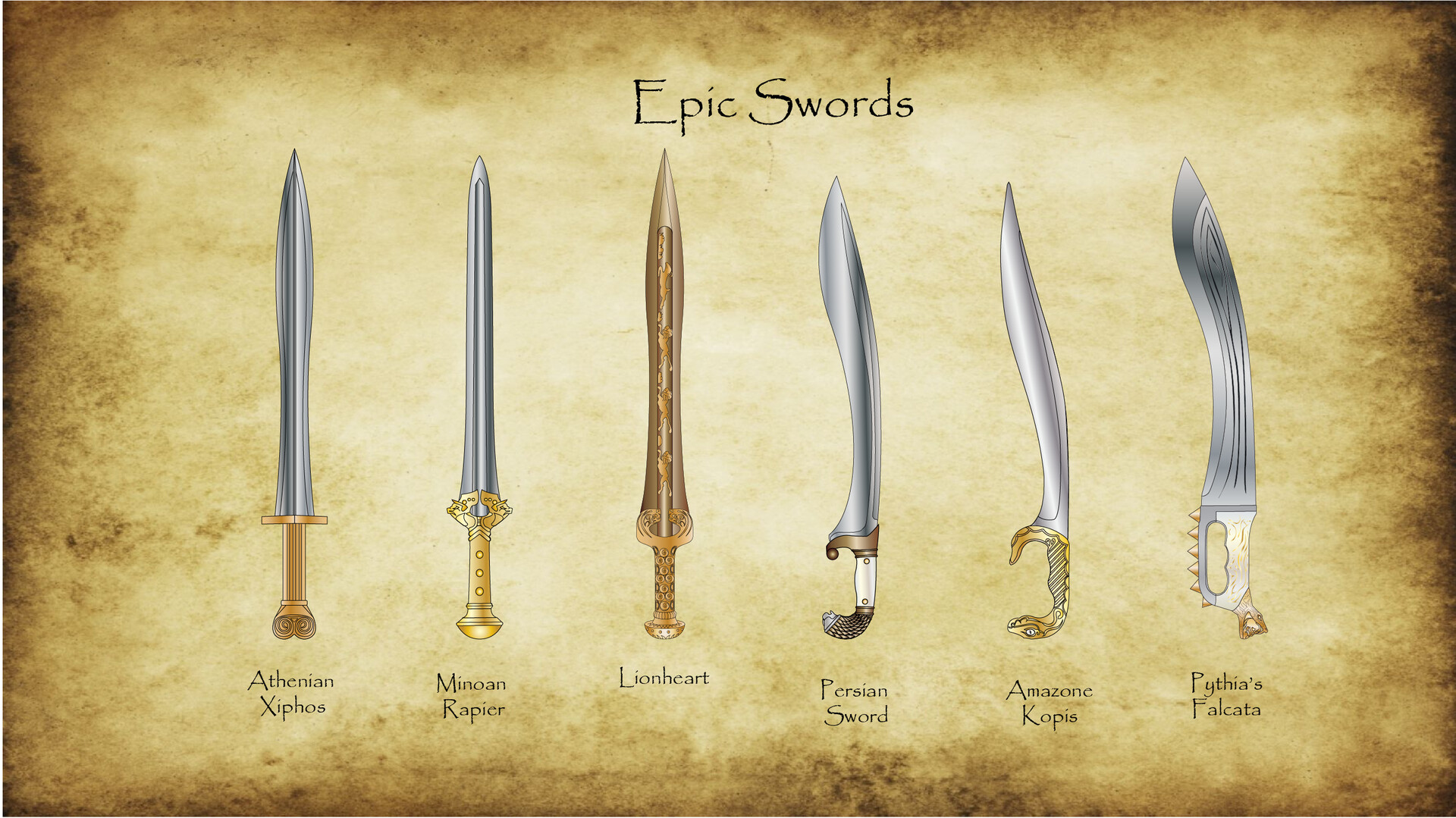
Ancient Greek Sword
Ancient Greek warfare. Warfare occurred throughout the history of Ancient Greece, from the Greek Dark Ages onward. The Greek 'Dark Ages' drew to an end as a significant increase in population allowed urbanized culture to be restored, which led to the rise of the city-states ( Poleis ). These developments ushered in the period of Archaic Greece.
Anyone using Greek weapons? TherosDMs
These ancient Greek weapons were quite literally toxic. Whether laced with viper venom, poison gas, or deadly pathogens—these weapons of war relied on nature's armory to slay the enemy.